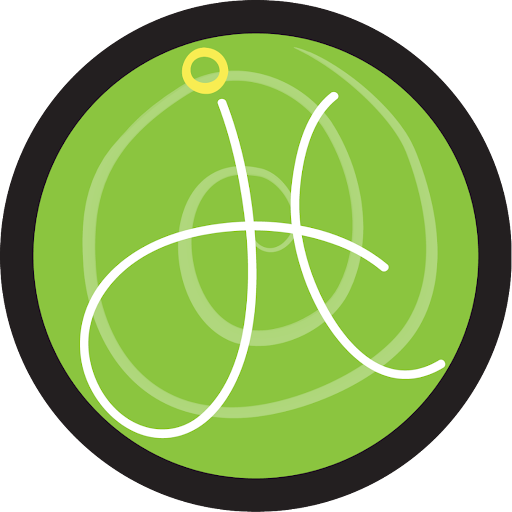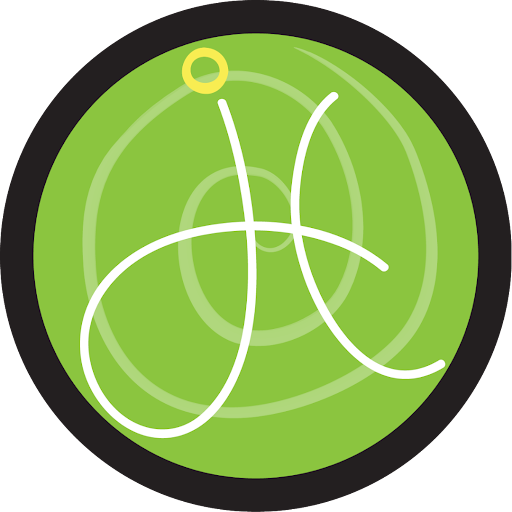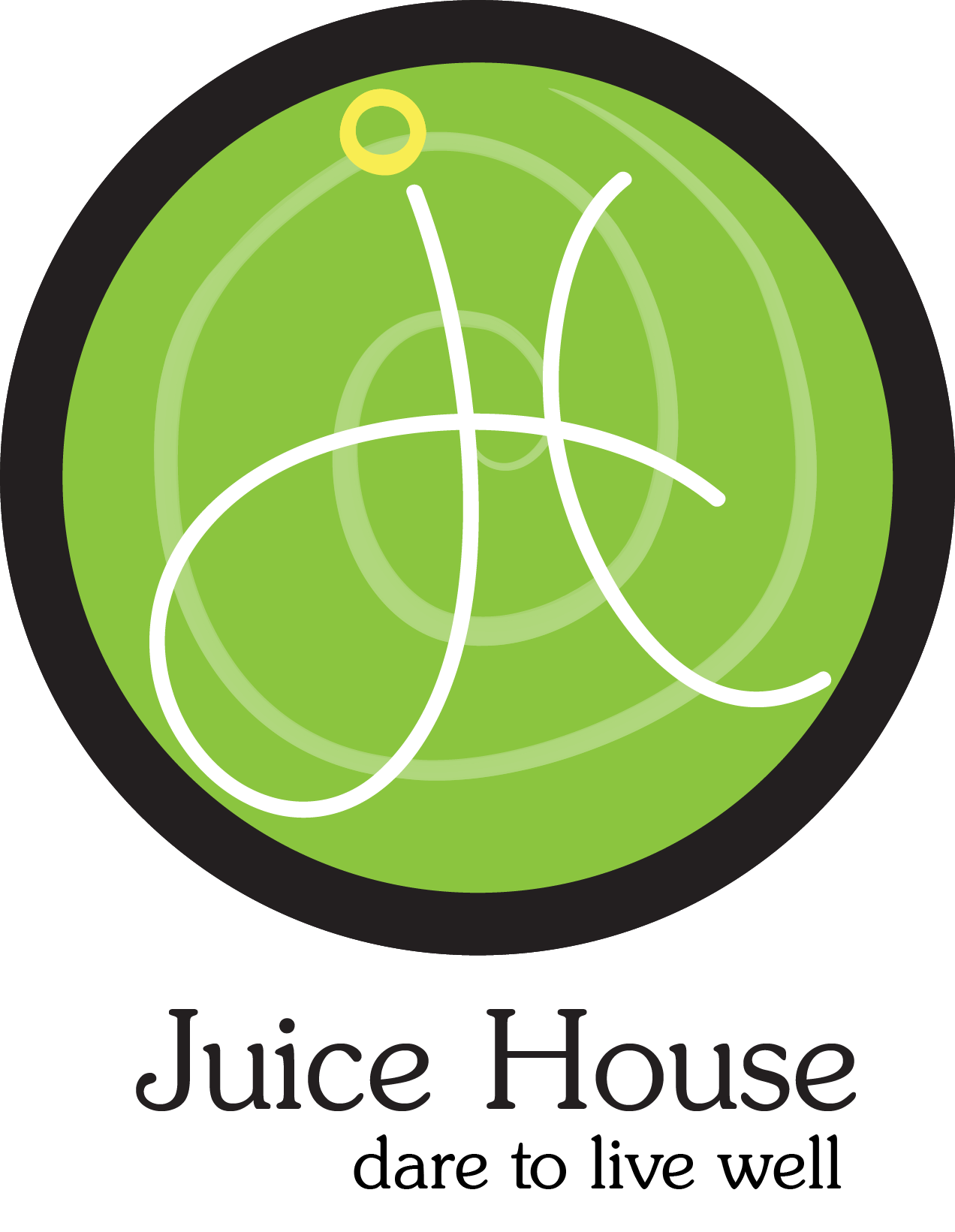This story is part of a UToledo Faculty and Staff Spotlight series, where we feature uplifting stories of the remarkable achievements and contributions of hidden champions who call the University of Toledo home, fostering connections across campus. Cover graphic by Juice House. Image courtesy of Dr. Jillian Bornak.
Dr. Jillian Bornak is an associate lecturer at the University of Toledo in the Department of Physics and Astronomy. She primarily teaches courses on astronomy and physics, but also teaches a freshman orientation class for students in the College of Natural Sciences and Mathematics. The JuicePress Team recently interviewed Bornak to learn more about their role and contribution to campus.
Q: Can you tell us about your academic journey? Where did you study and what were some pivotal moments for you? What are your degrees in?
A: You could say my journey has been [cold] and [hot]: upstate New York to southern New Mexico. I went to Syracuse University for a B.A. in Physics. For three years, I was a computer engineering major, which seemed [a] safe career choice. I was taking physics courses out of pure interest, but a course in relativity and black holes made me realize that perhaps I should switch my major to physics — I will admit to being a bit slow on the uptake sometimes. At the time, I was unsure what kind of job it could lead to, and my advisors never mentioned anything related to careers — and the internet was sparse on the topic at that point.
I worked a normal office job for a few years, but it was unfulfilling and also, to be honest, mind-numbingly boring. That was when I looked into graduate school as an option, and I was accepted to New Mexico State University. I did some work on [a] neutron star emitting a powerful jet, but eventually did my dissertation on dust grains forming from material thrown off an exploding white dwarf — think of ash condensing from a candle flame. I earned my doctorate in astronomy in 2012, when the world did not end.
Q: What field or research area do you focus on? What initially sparked your interest? Who or what has been a significant influence on your professional journey?
A: As a kid, I was always interested in science, and my parents encouraged that. But I didn’t know what I wanted to do. My interest gradually narrowed [to] astronomy, and stars will always be my favorite topic to teach.
At Syracuse, I remember working as a teaching coach — like an undergraduate TA — for one professor who put a lot of work into making his course more actively engaging for learners, and that planted the seeds of my interest in teaching. At NMSU, the astronomy department did a lot of public outreach, bringing telescopes to local parks for free star gazing, and that definitely fanned my interest in outreach and education. It’s funny because by the end of my degree program, I realized I enjoyed teaching far more than research, and used more of my skills doing so. That’s how I ended up at UToledo. I’ve met some amazing mentors and friends here!
Q: What excites you most about the future of your field?
A: The ability of college to change people’s lives and perspective[s] is powerful. I am excited to see more people have that opportunity. Toledo serves a unique population of students and a mix of people, so we have the power to affect a lot of lives.
Q: What advice would you give to students who are interested in pursuing a career in your field?
A: While I am not involved in astronomy research, I can say massive data sets and machine learning are making their marks on astronomy, as well as increasingly powerful facilities like [the James Webb Space Telescope] and soon the Vera Ruben Observatory. As a student, it’s an exciting time to jump into growing new fields, so I strongly recommend students try to get involved in undergraduate research, even when the projects might not be exactly aligned with their career goals.
Education in Ohio and higher education overall both are going through some changes; I don’t have the background of an education degree to give [an] appropriate perspective on that, though. What I can say in looking at my career so far is that I made the best choices I could at the time with the information I had after doing a diligent search, but I also feel like I’ve fallen backwards into my field by taking advantage of things that just came up with good fortune. I’d tell students to talk to people: teachers, alums, business folks, people you meet at random events and practice talking about the things you enjoy at different levels — with experts and novices alike.
I urge students to make use of the free counseling provided by the university. I have wrestled with depression and anxiety my whole life, and counseling helped me stick with college and finish my degree. Paying for counseling is expensive, so take advantage of it while you can! Honestly, I wish I could go back and tell my younger self, “do it scared,” because if I waited until I wasn’t anxious or wasn’t unsure, then I’d never do anything. I’m basically a hermit with social anxiety who happens to teach hundred-person classes.
Also, you’d be surprised by how far stubbornness can get you when you don’t give up, but don’t be afraid to pause and adjust, or reevaluate your plans. Listen to yourself: sometimes the most important things were from the quiet whisper inside my head; unfortunately, the voice I most often discounted.
Q: How long have you worked at the university?
A: I started in 2013, so that makes it 12 years now. Ugh, that’s more than a decade, but it simultaneously feels like only 5 years but also like a lifetime — er, both in good ways, though.
Q: Can you summarize what you do in your role at UT?
A: As a lecturer, my job is teaching — no research at all. Most people imagine that [it] is mostly lecturing in a classroom, but more of my time working is spent outside of the classroom than in it. Along with tracking my students, I constantly tweak my classes, updating material and try to make them more effective and efficient for learning. I try to help other faculty who are interested in teaching. Otherwise, I assist where I can. Like other faculty, I serve on committees to help my department and the university overall.
Q: Can you share about a project or research initiative you’re particularly proud of?
A: I realize this sounds weird, but I get excited about the survey data I’ve been collecting from students for at least a decade. I am fascinated with trying to find trends and by things that don’t show trends, also by the flashbulb snapshot view I get of students. You can ask my chair about my infamous yearly review report with graphs. I’ve started sharing the results at the American Association of Physics Teachers’ yearly conference.
Q: What are some of your most significant achievements at the university?
A: I think I’ve won nearly every teaching award the university has to offer.
Q: In what ways have you contributed to the broader university community?
A: On the face of it, I am a small fish. I don’t create academic programs or do fundraising, nor do I start student initiatives like the amazing work of Greening UToledo Through Service. When I first started here, I reached out to lecturers across my college, organizing get-togethers where we could share tips and stories, but that stopped with the pandemic. I try to help in small ways: sharing resources with students and with faculty, encouraging a sense of wonder about the universe and the sheer scale of what’s out there and reminding students — and myself — that we learn through mistakes and failures as much as through successes. I like to spread the word about hidden gems we have, like the Ritter Planetarium and the falcon nest camera at the top of U[niversity] Hall.
Q: How do you support students outside of the classroom?
A: UToledo has a range of support services — the LEC, Student Advocacy, the Accessibility Office, Rocket Cares Reports, Rocket Aid, the food pantry, the free Career Closet, free counseling! I try to raise awareness about them in all of my classes; I urge students that even if they don’t need them, they will probably kn[o]w someone who would benefit. When students come to me with problems, I may not know the solution, but I probably know who to ask to get there.
Q: What is a meaningful or favorite memory you have of being an undergraduate or graduate student?
A: The first time I used a research telescope on my own — my first solo run — was pretty intense since it was during monsoon season in the southwest. The rainy season seems like a stupid time to use a telescope, right? It was the only time the neutron star I was studying was high enough in the sky in the northern hemisphere for us to observe it. Being in the telescope building and having the rain pounding down, interrupted by bursts of thunder and the most amazing lightning show I’ve seen — that stays with me. I actually got good data from the few nights I was able to open [the telescope] and proved there was periodic activity from the neutron star instead of it being random.
Looking back, I would also say it’s important to enjoy the little things, too. At Syracuse, I once broke into the music building by climbing into a basement window so I could hear some amazing organ music. In graduate school, I decorated a friend’s office door with a few hundred little green plastic army men — I think a few are actually still there. I also coordinated with some other graduate students to fill a professor’s office with balloons — definitely not there any more.
Q: What do you enjoy about living in the Toledo area?
A: When I first came here from the desert of the southwest, I was struck by how green and water-rich it is! So many parks! Toledo has big-city-quality community things like the art museum, the zoo, the parks and a great range of cuisine, but without the traffic of a larger city and with a much better cost of living. Since I moved to Toledo, I’ve gotten to see a total solar eclipse and the northern lights — not bad for the Glass City!
Q: What hobbies or interests do you pursue outside of work?
A: I am a devoted caretaker of my birds, currently three cockatiels: one cranky 25-year-old and two energetic siblings less than a year old. There is a joke that dog people and cat people don’t always see eye to eye, but what they do agree is that nobody is weirder than bird people. It’s 100% true.
I blame Dr. Todd Crail for getting me into gardening with native flowers. I used to be baffled that people liked to garden, and now I’m germinating seeds in plastic bags of dirt in my fridge. Seriously, I’ll have planters all over the backyard in the summer. I grow more than I can plant and have shared it with others, including a teacher who created a prairie garden at his school with his students. I’m excited to plan out replacing sections of my garden; it’s like a puzzle to solve, a battle to orchestrate and a workout all in one. Best of all, once the native flowers are in the ground, they are fairly low maintenance, and they help the entire ecosystem.
I play video games. I do sporadic art, like sketching, jewelry-making [and] a few oven-baked sculptures. I have fun pulling together epic Halloween costumes and also convincing my friends to join me in group-themed costumes.
Q: What is a fun fact about yourself?
A: Hmm. I can whistle breathing in and out, but I’m not sure that’s interesting. In the early ‘90s, I watched old episodes of the British sci-fi show, “Doctor Who” on NJN. I learned they were going to stop carrying the show and that BBC wasn’t going to make more episodes, so I called them to ask them not to stop. This was before the internet, so it was basically my calling a company to talk to operators who would connect my call to others, eventually connecting the random American kid to the BBC in England. I really should have asked my parents about the phone bill from that. This is completely unrelated to the fact that “Doctor Who” was renewed in 2005.
Note: Responses from the interviewee were received by email and have been edited for grammar and clarity.


